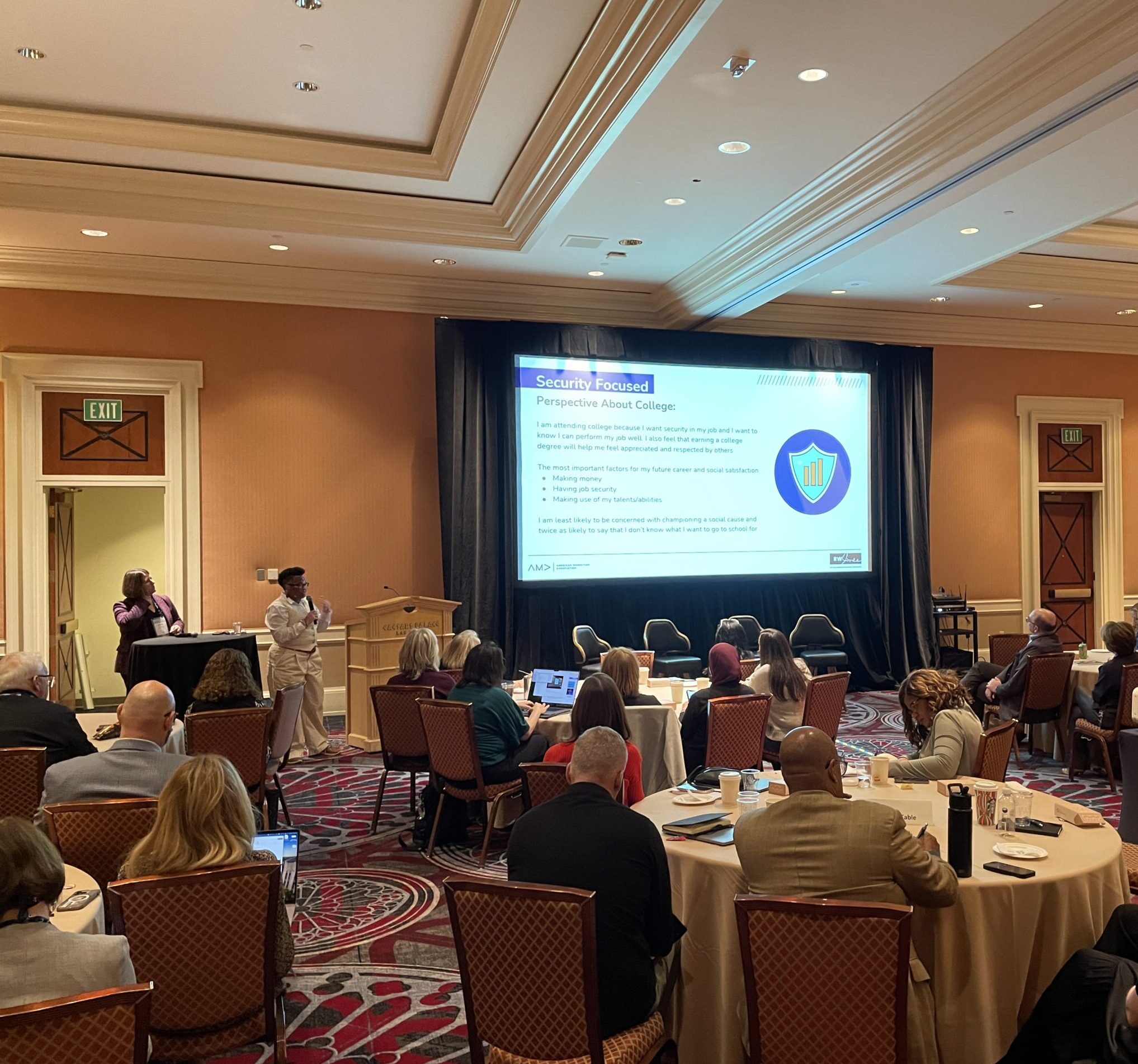The opening session of the Senior Leader Experience at the American Marketing Association’s Higher Education Symposium nailed it. It was a powerful reminder of the central role reputation plays in the success of higher education institutions. Brian Rosenberg, president emeritus of Macalester College and visiting professor of education at the Harvard Graduate School of Education, set the tone with his observation:
“The most important thing an institution has is not its endowment, it’s not its physical plant, it’s its reputation.”
This statement underscores a critical truth: In an increasingly competitive higher education landscape, reputation is an institution’s most valuable asset. However, as institutions evolve, leaders must become better at managing their campus’ reputation.
The Evolving Role of Marketing and Communications in Higher Education
Marketing and communications (MarComm) roles in higher education were once seen as a service unit and limited to offerings such as media relations, creating brochures and providing advancement support. Today, a mature MarComm infrastructure plays a far more strategic role, encompassing brand management, reputation building and revenue generation. Yet many institutions still operate with fragmented and decentralized marketing and communication efforts. To support the institution’s broader goals, MarComm must function as a unified, data-driven and accountable entity.
Why Reputation Matters
A strong institutional reputation influences every facet of a university’s success, from attracting students and donors to recruiting top-tier faculty. Effective reputation management relies on a well-defined brand that differentiates the institution in a crowded market. To achieve this, MarComm teams must be empowered to lead this work, driving consistent storytelling, integrated marketing communication strategies and measurable outcomes.
You Can’t Fix What You Won’t Face
The symposium also reinforced the idea that MarComm is not just a support function but a key revenue driver. Gerald Hector, senior vice president for administration and finance at the University of Central Florida, focused his session on the need for marketing to be a revenue driver. This is a fundamental reality that many institutions need to embrace. Whether through enrollment marketing campaigns or fundraising initiatives, MarComm teams should demonstrate clear ROI, showing how their strategies directly impact student recruitment, donor engagement and institutional growth.
A Call to Action for Institutional Leaders
To fully harness the potential of MarComm, institutional leaders must prioritize and invest in these functions. They must hold MarComm teams accountable for outcomes, ensuring they have the tools, talent and organizational support needed to succeed. As Rosenberg so clearly articulated, reputation — and the sophisticated MarComm infrastructure that supports it — should be viewed as a core institutional asset, on par with endowments and facilities.
When institutions embrace this perspective, they position themselves to thrive in an increasingly competitive higher education environment, ensuring that their reputation continues to drive success for years to come.
Kudos to the AMA Higher Ed Senior Leader Experience planning team for bringing in a president and CFO to drive these messages home.
Want to learn more about what you missed at AMA Higher Ed 2024 or talk all things reputation? Connect with Jamie.





